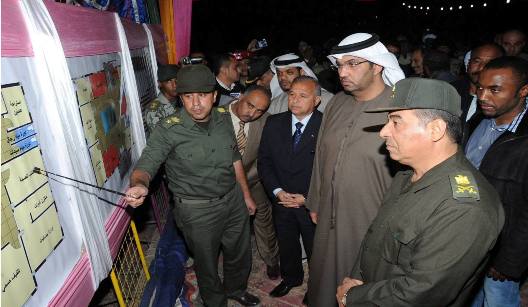 Mohsin Khan, a resident senior fellow in the Rafik Hariri Center for the Middle East focusing on the economic dimensions of transition in the Middle East and North Africa, argues in his latest article for the Atlantic Council’s MENASource that the Gulf states “have started using their vast resources to shape the region, direct political developments, and mold strategic relationships; in other words, the Gulf is now engaged in “geoeconomics”—the use of economic instruments to achieve geopolitical objectives.”
Mohsin Khan, a resident senior fellow in the Rafik Hariri Center for the Middle East focusing on the economic dimensions of transition in the Middle East and North Africa, argues in his latest article for the Atlantic Council’s MENASource that the Gulf states “have started using their vast resources to shape the region, direct political developments, and mold strategic relationships; in other words, the Gulf is now engaged in “geoeconomics”—the use of economic instruments to achieve geopolitical objectives.”
“…Egypt’s case demonstrates with abundant clarity that the Gulf is prepared to use money as a geoeconomics instrument to further political agendas and preferences. Despite having previously used geoeconomics with other countries, the business was conducted behind closed doors so that the political conditions attached to the financing are known only to a select few. Now the Gulf has gone public. Intervention into regional domestic politics makes unambiguous the will to finance those countries that share political views and are opposed to those groups that they do not like. But then in a sense the Gulf states are only emulating larger countries like the United States, the United Kingdom, Russia, and China in the use of geoeconomics instruments.”
Image: Egyptian military officers show UAE Minister Sultan al-Ahmed al-Jaber plans for development projects in Egypt. (Photo: Egyptian Military Spokesperson Facebook page)
 Mohsin Khan, a resident senior fellow in the Rafik Hariri Center for the Middle East focusing on the economic dimensions of transition in the Middle East and North Africa, argues in his latest article for the Atlantic Council’s MENASource that the Gulf states “have started using their vast resources to shape the region, direct political developments, and mold strategic relationships; in other words, the Gulf is now engaged in “geoeconomics”—the use of economic instruments to achieve geopolitical objectives.”
Mohsin Khan, a resident senior fellow in the Rafik Hariri Center for the Middle East focusing on the economic dimensions of transition in the Middle East and North Africa, argues in his latest article for the Atlantic Council’s MENASource that the Gulf states “have started using their vast resources to shape the region, direct political developments, and mold strategic relationships; in other words, the Gulf is now engaged in “geoeconomics”—the use of economic instruments to achieve geopolitical objectives.” 